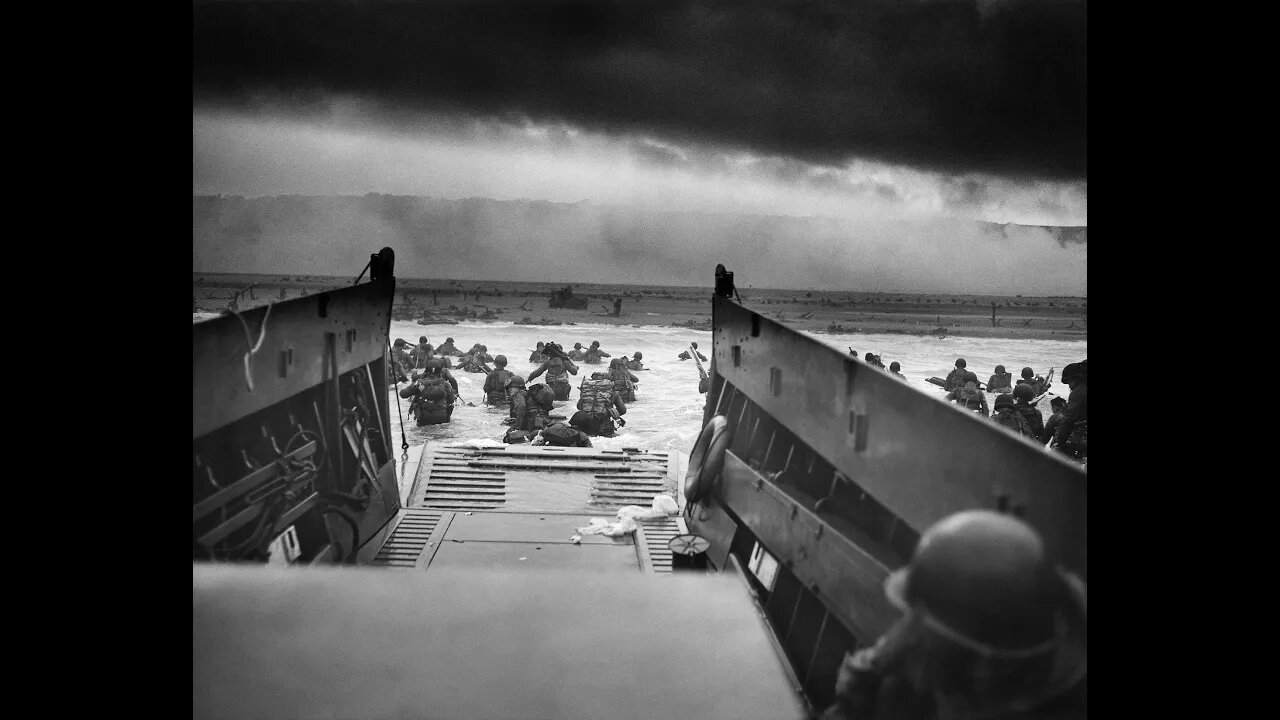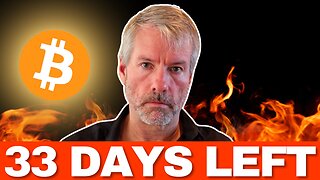Premium Only Content

D-Day June 6, 1944 . 77 years ago today
#MakeAmericaThinkAgain. #MAGA
On this day in 1944, Allied troops land on the beaches of Normandy, France. Today is the anniversary of D-Day! That effort was massive. More than 5,000 ships and 13,000 aircraft would eventually participate in the invasion—and more than 160,000 Allied soldiers would disembark on French shores.
It was the largest amphibious invasion in history. It was also the beginning of the end for Nazi Germany.
Dicey weather nearly put a stop to everything, but General Dwight D. Eisenhower plowed ahead. The landings had already been delayed once, and he didn’t want to delay again. The tides were changing soon after June 6. It would be weeks before favorable tides would return.
In other words, further delays were not an option.
Planning for the operation had been conducted with the utmost secrecy. Obviously, the Germans could not discover the plan. In fact, details of the landings were kept secret even from the soldiers who were expected to participate in them.
“We knew we was preparing for a landing,” one American soldier later described. “We didn’t know where, or the exact date, or anything until we was getting ready to load up, you know. I don’t know even whether our officers knew exactly everything.”
Nevertheless, Allied planners had a few scares. For one thing, they discovered that some of their code names were being used in the Daily Telegraph’s crossword puzzle. (Yikes!) Utah, Omaha, Gold, Juno, and Sword were code names for beaches in France, but they were also answers to the crossword puzzle during May 1944. Oddly, other code names such as “Mulberry” and “Overlord” popped up in the puzzle, too. Was the creator of the puzzle trying to send messages to Germany?
He was investigated, but cleared. The issue seems to have arisen because he was getting inspiration for his puzzles from boys attending school near a military base.
D-Day finally arrived. Allied forces undertook an extensive aerial and naval bombardment, and they inserted airborne troops into the area just after midnight. Finally, infantry and armored divisions began their beach landings at dawn.
The day was hard. Allied forces didn’t accomplish any of their short-term objectives: They’d meant to seize several beaches and link them. They’d also intended to seize control of several specified cities. None of that happened—at least not on the first day. Worse, thousands of soldiers were killed, wounded or missing in action.
On the other hand, Allied forces had accomplished something important: They’d seized a foothold on European shores. “The eyes of the world are upon you,” Eisenhower had written his men just before the landings began. “The hopes and prayers of liberty loving people everywhere march with you. . . . I have full confidence in your courage, devotion to duty and skill in battle. We will accept nothing less than full Victory!”
And, eventually, that’s exactly what they got. Victory in Europe Day was less than one year away.
-
![[Ep 737] Media & Left Attack Prayer and God | Media Loses Control of Narrative | CDL Fraud](https://1a-1791.com/video/fww1/ca/s8/1/m/N/f/d/mNfdz.0kob-small-Ep-736-Make-Gender-Dysphori.jpg) LIVE
LIVE
The Nunn Report - w/ Dan Nunn
1 hour ago[Ep 737] Media & Left Attack Prayer and God | Media Loses Control of Narrative | CDL Fraud
175 watching -
 2:53:12
2:53:12
Right Side Broadcasting Network
7 hours agoLIVE REPLAY: White House Press Secretary Karoline Leavitt Holds a Press Briefing - 8/28/25
97.9K43 -
 1:38:09
1:38:09
Simply Bitcoin
5 hours ago $1.75 earnedIs This Your LAST Chance to Buy Bitcoin Before the GENERATIONAL Bull Run Begins? | EP 1320
16.3K2 -
 LIVE
LIVE
StoneMountain64
3 hours ago#1 WARZONE TACTICIAN + New Battlefield Trailer
157 watching -
 20:03
20:03
Adam Does Movies
4 hours ago $0.43 earnedAlien: Earth Episode 1 - Recrap
11.5K2 -
 15:38
15:38
IsaacButterfield
11 hours ago $0.42 earnedExploiting His Baby For Views (The Island Boys)
8.76K11 -
 32:09
32:09
The Boomer Effect
7 hours agoBuy American and Build America
8.52K1 -
 1:59:46
1:59:46
The Charlie Kirk Show
4 hours agoShould Taylor Swift Submit? + What's Wrong In Minneapolis? + MAHA vs. CDC | 8.28.2025
56.5K32 -
 50:23
50:23
The White House
3 hours agoPress Secretary Karoline Leavitt Briefs Members of the Media, Aug. 28, 2025
38.2K36 -
 1:01:34
1:01:34
Timcast
5 hours agoCatholics Targeted By TRANS Shooter, Left Blames CHRISTIANITY
169K131